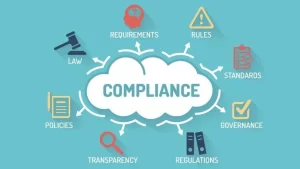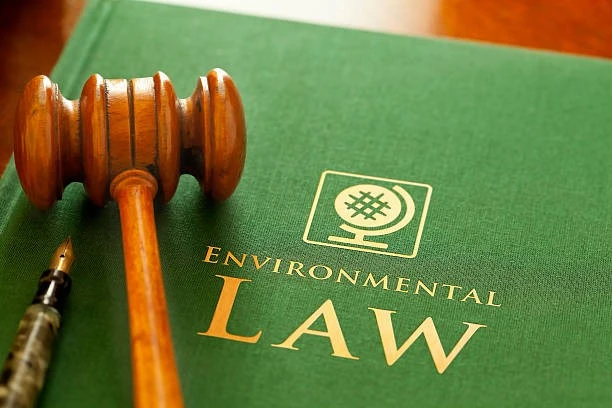Introduction
In India, non-compliance with environmental laws can lead to stringent penalties imposed by regulatory bodies like the Central Pollution Control Board (CPCB) and the State Pollution Control Board (SPCB). These penalties for environmental law violations are designed to enforce compliance and ensure industries operate within environmental regulations. In this article, we are discussing penalties for environmental law violations. Here’s a breakdown of penalties and legal actions that can be imposed by the CPCB and various SPCBs:
1. Penalties Under the Air (Prevention and Control of Pollution) Act, 1981
Failure to Comply with Directions
If an industry does not comply with directions issued by CPCB or SPCB to control air pollution, it can face fines or imprisonment.
Fines: Up to ₹10,000.
Imprisonment: Up to 6 years and a fine, or both. In cases of continuing contravention, an additional fine of ₹5,000 per day is imposed for every day the violation continues.
Closure of Industry: Authorities can direct the closure of the polluting industry until compliance is achieved.
2. Penalties Under the Water (Prevention and Control of Pollution) Act, 1974
Non-Compliance
Discharging untreated or inadequately treated wastewater into water bodies or failing to meet prescribed standards for water pollution can lead to:
Fines: Up to ₹1 lakh.
Imprisonment: For non-compliance, imprisonment can range from 1.5 to 6 years, or both. If the violation continues, an additional fine of ₹5,000 for each day is imposed.
Plant or Operations Closure: Authorities may order the closure or restriction of water supply to industries that are found in violation.
3. Penalties Under the Environmental (Protection) Act, 1986
Failure to Comply with Environmental Standards
Violating environmental clearance conditions, environmental laws, or standards prescribed under the Act can lead to:
Fines: Up to ₹1 lakh.
Imprisonment: Up to 5 years. If the violation continues, imprisonment may extend to 7 years.
Higher Penalties: In cases where violations cause environmental damage, higher penalties, including suspension of operations or other corrective measures, can be imposed.
4. Hazardous Waste (Management and Handling) Rules, 2016
Improper Management of Hazardous Waste
Non-compliance with hazardous waste management guidelines (such as improper storage, transportation, or disposal) can lead to:
Fines: ₹1 lakh and above.
Imprisonment: Up to 5 years, with possible extension to 7 years for continued violations.
5. Solid Waste Management Rules, 2016
Improper Disposal of Solid Waste
Failure to manage and dispose of solid waste according to the prescribed rules can lead to:
Fines: Imposed on industries, municipalities, and even individuals. These fines can range from ₹5,000 to ₹1 lakh or more based on the severity of the violation.
Legal Action: CPCB or SPCB can initiate legal proceedings against the violator.
6. Noise Pollution (Regulation and Control) Rules, 2000
Violation of Noise Pollution Standards
Exceeding noise levels beyond permissible limits, particularly during festivals, can result in:
Fines: Ranging from ₹1,000 to ₹1 lakh depending on the extent of violation and non-compliance with guidelines.
Seizure of Equipment: Authorities can seize sound equipment and issue notices for corrective action.
7. Closure of Industries
Direction to Shut Down
Both CPCB and SPCB have the authority to issue closure notices to industries that fail to comply with pollution control norms. This may include:
– Immediate closure of industrial units.
– Disconnection of electricity and water supply to the premises.

8. Environmental Compensation
Compensation for Damage
CPCB or SPCB can impose environmental compensation charges on industries responsible for causing environmental damage or pollution. The amount is calculated based on the “Polluter Pays Principle” and varies depending on the scale of damage.
9. Revocation of Environmental Clearance or Consent to Operate
Industries that do not comply with environmental regulations risk the revocation of their Consent to Establish (CTE) and Consent to Operate (CTO) under the Water and Air Acts, effectively halting operations.
10. Public Liability Insurance Act, 1991
Compensation for Hazardous Incidents: If an industry is involved in handling hazardous substances, any incident that causes environmental damage or harm to human health can lead to compensation claims. The industry is liable to pay for damages under this Act.
11. National Green Tribunal (NGT) Penalties
Orders and Fines by NGT
NGT can impose substantial penalties on industries found guilty of environmental violations, including:
Fines: Ranging from ₹1 lakh to several crores depending on the severity of the violation.
Restitution Orders: NGT can order industries to pay for restoration and remediation of environmental damage caused.
Noteworthy Case Studies
Sterlite Copper Plant (Tamil Nadu): The Sterlite copper plant was closed by Tamil Nadu Pollution Control Board (TNPCB) following orders from the NGT for non-compliance with environmental norms, particularly for air and water pollution.
SPCB’s Action Against Sugar Mills: SPCBs have taken strict action against sugar mills in various states for not treating wastewater properly, imposing fines and issuing closure notices to violators.
Key Takeaways
– Non-compliance with environmental laws can lead to hefty fines, imprisonment, closure of industrial operations, and legal action.
– CPCB and SPCBs have the authority to impose strict penalties to ensure industries adhere to pollution control norms.
– Industries should proactively monitor their compliance with environmental regulations to avoid penalties and reputational damage.
Maintaining compliance with environmental laws is not only essential for legal reasons but also critical for sustainable business operations and corporate responsibility.
If you would like to know more about Penalties for Environmental Law Violations by CPCB and SPCB, write to us at enquiry.meepl@gmail.com or contact us.
